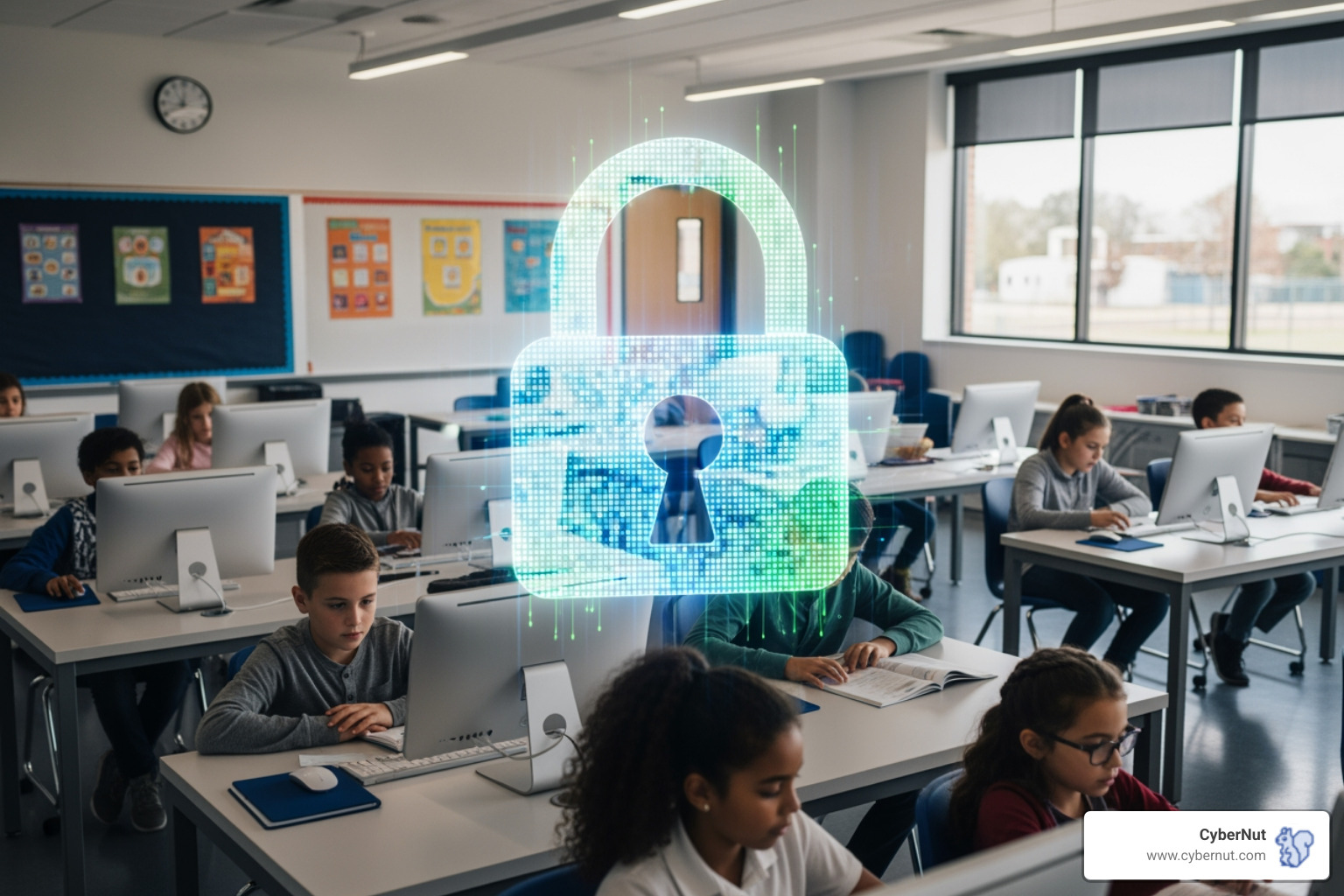
Oliver Page
Case study
November 4, 2025

For Oregon K–12 districts, understanding the Oregon Consumer Identity Theft Protection Act (OCIPA or CITPA) is crucial. As Oregon's core data privacy law, it dictates how schools must protect sensitive information. Here’s a quick overview:
Schools manage vast amounts of sensitive data, and with growing cyber threats, compliance is non-negotiable. Ignoring these rules can lead to legal penalties and a loss of community trust. This guide clarifies OCIPA and related privacy laws to help Oregon K–12 districts keep their data secure.
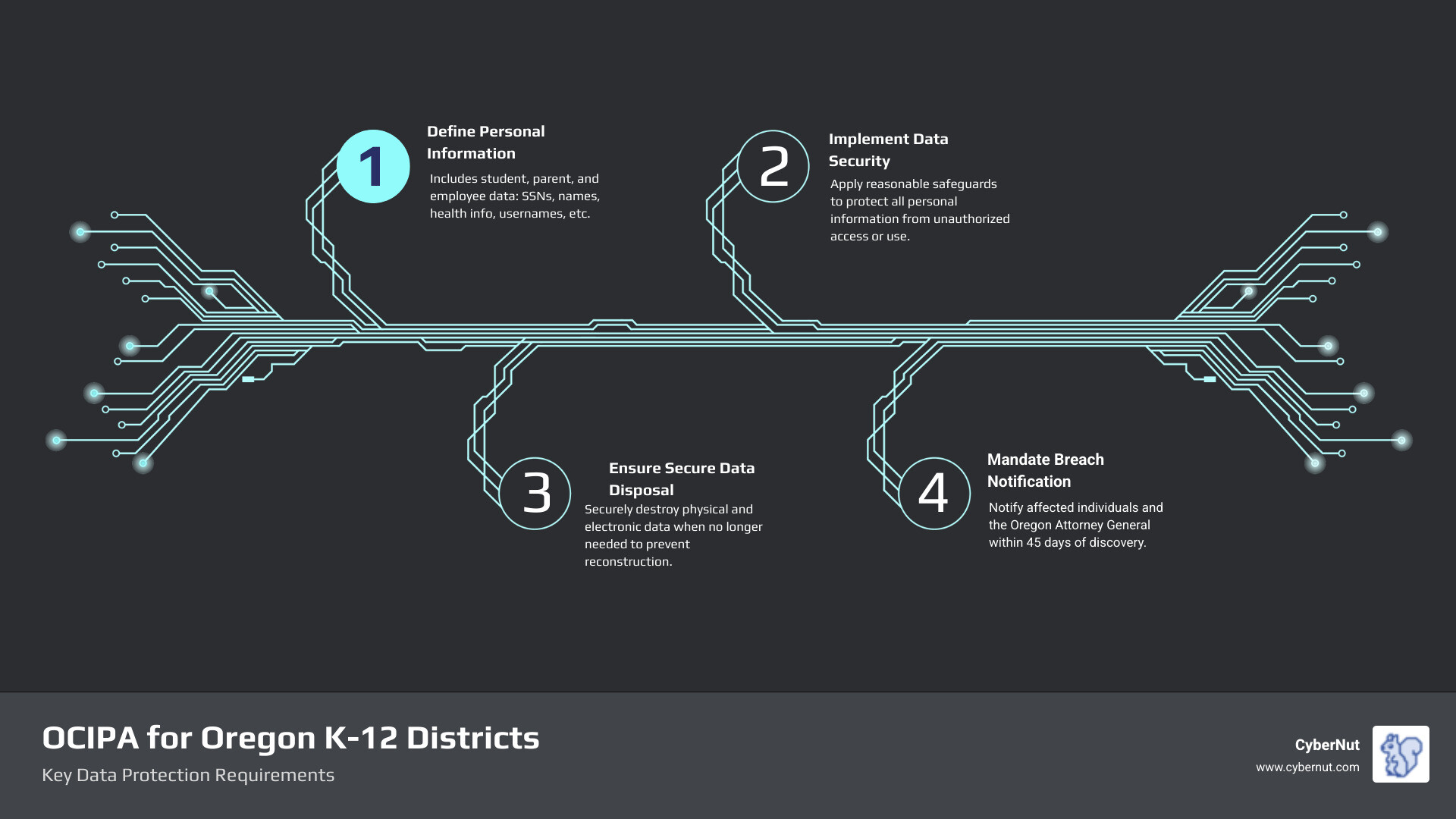
What to Know About OCIPA for Oregon K–12 Districts glossary:
The Oregon Consumer Identity Theft Protection Act (CITPA), commonly known as OCIPA, is Oregon's primary law for protecting personal information (Or. Rev. Stat. §§ 646A.600 et seq.). It establishes rules for data security, disposal, and breach response to shield individuals from identity theft. For K-12 districts, OCIPA is a vital playbook for protecting sensitive data.
The law applies to any entity that "owns or licenses personal information... in the course of business, vocation, occupation, or volunteer activities." This clearly includes Oregon K-12 districts, which constantly handle personal details of students, staff, and families. OCIPA covers any personal information a district "owns, maintains, or possesses," making its reach comprehensive. Understanding this scope is the first step toward compliance. For more details, see this Oregon's data privacy laws overview.
OCIPA defines "personal information" broadly. It typically includes a person’s first name or initial and last name combined with one or more of the following data points:
For K-12 districts, this definition covers a vast amount of daily data, including student records, parent contact and financial details, and employee HR and payroll information. If information could lead to identity theft, OCIPA considers it personal information that must be protected.
OCIPA's requirements extend to nearly every corner of a district. As entities that "own, maintain, or possess" personal information, districts are directly responsible for its security, whether it's on central servers, at individual schools, or in paper files. This responsibility covers:
Because OCIPA applies to all "business, vocation, occupation, or volunteer activities," data security is a district-wide responsibility, not just a task for the IT department.
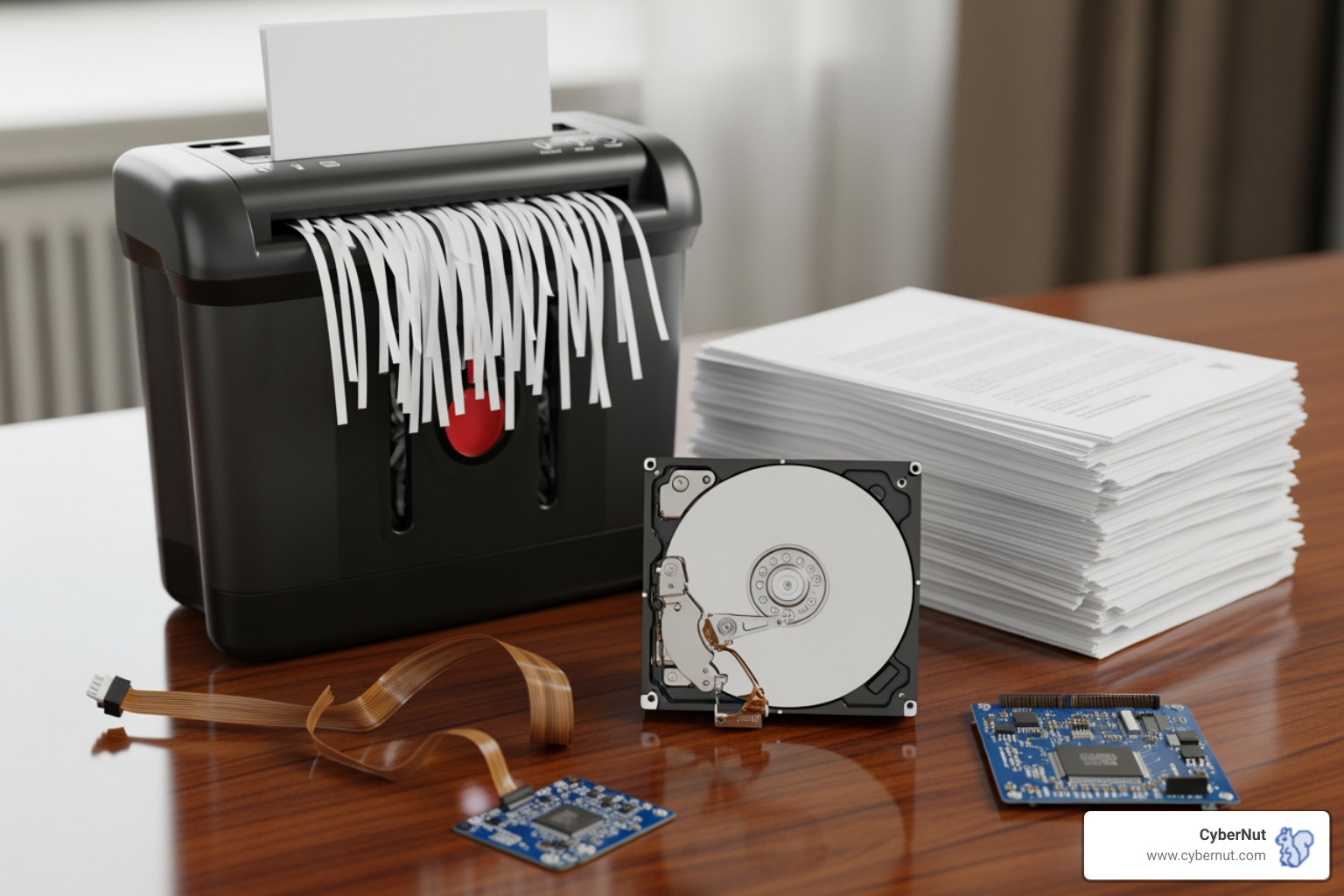
OCIPA provides clear rules for handling personal information, from collection to disposal. This proactive approach to security is about embedding safeguards into daily operations to protect data throughout its lifecycle.
OCIPA requires districts to "develop, implement, and maintain reasonable safeguards to protect the security, confidentiality, and integrity" of personal information. "Reasonable" means using security measures appropriate for the data's sensitivity and the associated risks. For K-12 districts, this includes:
Following frameworks like NIST can help build a robust security posture, ensuring all data is treated with the care it deserves.
Properly disposing of data is as critical as protecting it during use. OCIPA mandates that information no longer needed must be destroyed so it "cannot be read or reconstructed."
A clear, written data retention policy is essential. It should define how long different data types are kept and specify the secure methods for their eventual disposal. Regular audits of these procedures ensure ongoing compliance and protection.
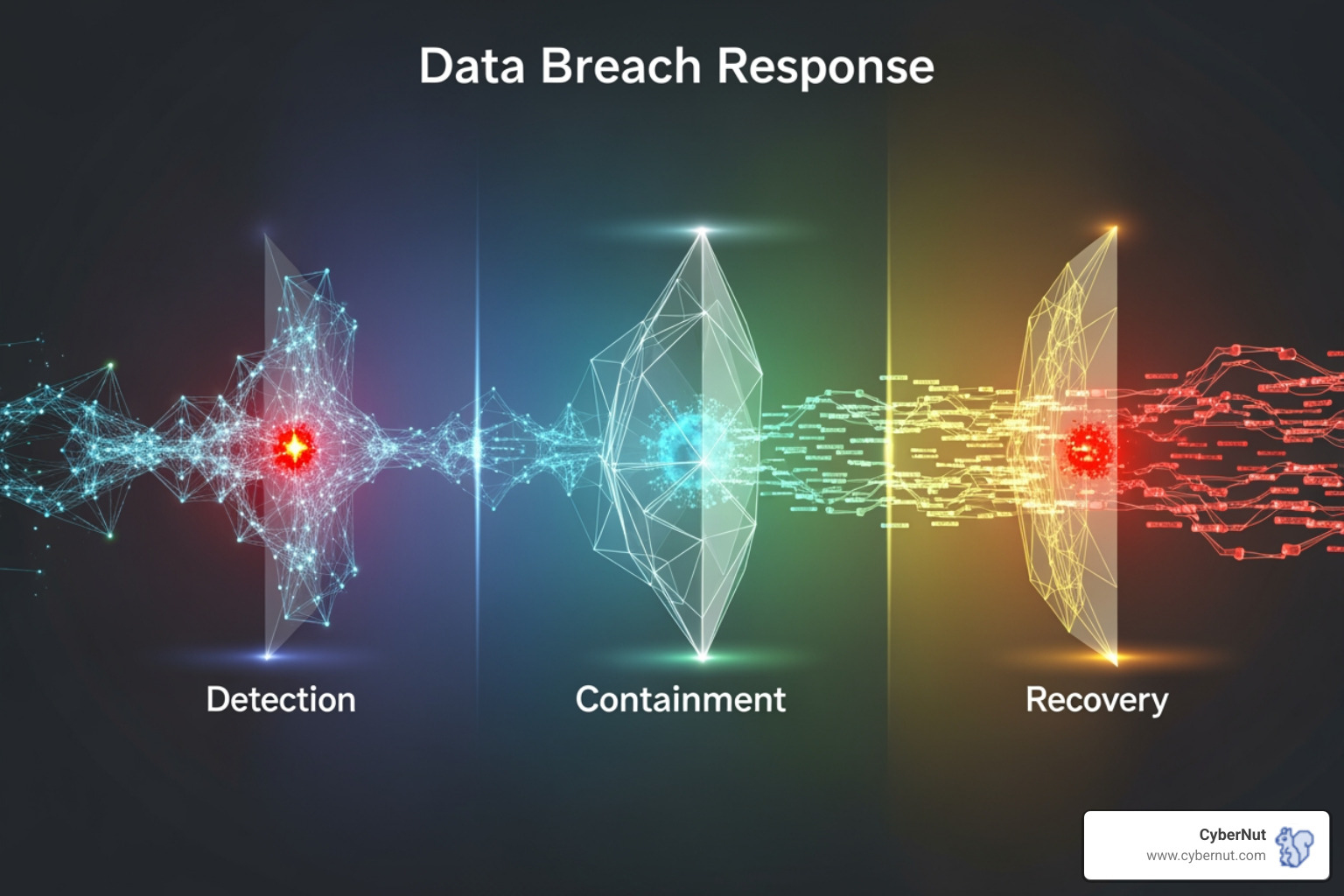
Despite strong safeguards, data breaches can happen. A breach is any unauthorized access to personal information that compromises its security. When a breach occurs, OCIPA provides a clear roadmap for response. Having a detailed incident response plan in place before an incident is critical for a swift, organized, and compliant reaction.
OCIPA spells out specific notification requirements for every Oregon K-12 district:
Notifications should describe the incident, the type of information involved, the district's response, and steps individuals can take to protect themselves.
OCIPA includes some key exceptions to notification requirements:
Non-compliance can lead to serious penalties. OCIPA violations fall under Oregon's Unlawful Trade Practices Act, enforced by the Attorney General, and can result in fines and corrective actions. Oregon's newer Consumer Privacy Act (effective July 2024) allows for fines up to $7,500 per violation, underscoring the state's commitment to data privacy.
Many breaches begin with human error, like falling for a phishing email. Ongoing security training is vital. To assess your district's vulnerability, consider a complimentary phishing audit to identify risks before they become incidents.
What to Know About OCIPA for Oregon K–12 Districts isn't just about understanding one law in isolation. OCIPA works alongside the federal Family Educational Rights and Privacy Act (FERPA) and Oregon's Student Information Privacy Act (SIPA). Together, these laws create a comprehensive safety net for district data. OCIPA sets the general security baseline, FERPA focuses on student education records, and SIPA regulates ed-tech vendors.
| Feature | OCIPA (CITPA) | SIPA (ORS 336.184) | FERPA |
|---|---|---|---|
| Primary Focus | General data security, breach notification | Ed-tech operator conduct, student data privacy | Student education records, parental rights |
| Applies To | Any entity owning/maintaining personal info | Operators of K-12 online services/apps | All schools receiving federal education funds |
| Data Covered | Broad "personal information" (SSN, DL, health) | "Covered information" (PII created by student/school) | "Education records" (directly related to a student) |
| Key Obligations | Reasonable safeguards, secure disposal, breach notification | Prohibits targeted ads/selling data, reasonable security, data deletion on request | Parental access/control, consent for disclosure |
| Enforcement | Oregon Attorney General (Unlawful Trade Practices Act) | Oregon Attorney General (Unlawful Trade Practices Act) | U.S. Department of Education |
FERPA is a federal law that protects student "education records" and gives parents rights to access, amend, and control the disclosure of those records. Its focus is narrower than OCIPA's.
While FERPA is limited to student education records, OCIPA applies to all "personal information" a district possesses, including employee HR data, parent financial details, and volunteer background checks. The two laws are complementary; strong OCIPA security practices help protect FERPA-covered records, and districts must comply with both, applying the stricter standard where they overlap.
The Oregon Student Information Privacy Act (SIPA), or Oregon Student Information Protection Act statute ORS 336.184, regulates the "operators" of K-12 websites, apps, and online services. While OCIPA governs the district, SIPA governs your ed-tech vendors.
SIPA places critical restrictions on these operators:
SIPA protects a broad range of "covered information," including records, contact details, and biometric data. When contracting with ed-tech companies, districts must ensure vendors are fully SIPA-compliant to protect student privacy.
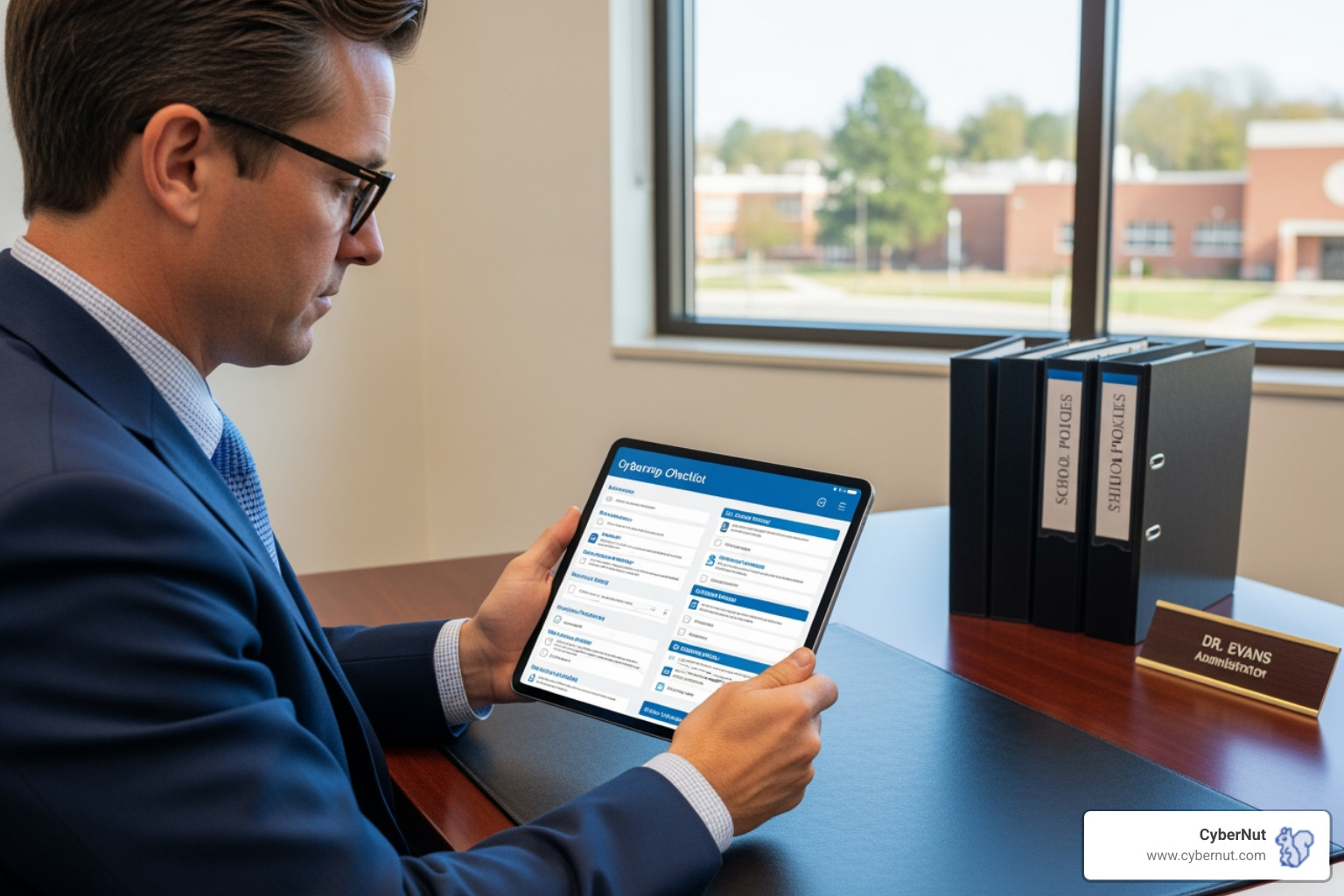
OCIPA compliance is an ongoing commitment to proactive risk management, not a one-time task. Building a culture of security builds trust with students, staff, and families. Here is a checklist to guide your district's efforts:
Effective vendor management is critical. SIPA requires ed-tech operators to protect student data, and districts must ensure their partners comply. Key actions include:
Here are answers to common questions about What to Know About OCIPA for Oregon K–12 Districts.
Yes. OCIPA's definition of personal information covers all formats, including paper files. The law's disposal requirements are specific for both physical records (which must be shredded, pulverized, or burned) and electronic media (which requires destruction or secure erasure). Districts must have secure processes for all record types.
The simplest way to think about it is: OCIPA governs what the district must do, while SIPA governs what the district's vendors must do. OCIPA applies directly to the district, setting rules for data security, disposal, and breach notification. SIPA regulates third-party ed-tech "operators," prohibiting them from selling student data or using it for targeted ads. The district is responsible for its own OCIPA compliance and for ensuring its vendors comply with SIPA.
Not necessarily. OCIPA provides a "safe harbor" for encrypted data. If the breached information was properly encrypted and the encryption key was not also compromised, notification may not be required. This is a powerful incentive for encryption, but districts must be certain their encryption meets industry standards and that the key remained secure. Even when exempt, it's wise to investigate the breach and consider voluntary notification to maintain community trust. To assess your security posture, consider a complimentary phishing audit.
Understanding What to Know About OCIPA for Oregon K–12 Districts is about protecting your community—students, families, and staff. By complying with OCIPA, SIPA, and FERPA, districts uphold the trust placed in them. This involves implementing reasonable safeguards, managing data disposal, and preparing for potential breaches. This ongoing commitment to compliance builds a secure environment where everyone feels safe.
Your strongest defense against cyber threats is often your own people. A well-trained staff acts as a "human firewall," protecting your district from attacks like phishing. At CyberNut, we understand the unique needs of K-12 districts. We provide low-touch, engaging cybersecurity training designed for educators. Our automated, gamified micro-trainings build phishing awareness and empower your team to become your first line of defense.
Don't wait for a threat to test your resilience. Take a proactive step to strengthen your district's security. Get a complimentary phishing audit for your district today, and explore more cybersecurity resources for schools to build a safer digital future for your community.

Oliver Page

Some more Insigths


Back